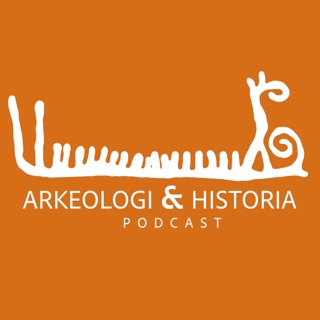
The Assassination of Charlie Kirk: Shermer Reflects on Political Violence
In this solo commentary, Michael Shermer reflects on the assassination of Charlie Kirk and places it in the larger context of political violence, the psychology of radicalization, the dangers of false beliefs, and the role of free speech in intellectual discourse.
17 Sep 27min

The Fate of Nations: Why Ignoring Human Nature Dooms Politics
Science writer Nicholas Wade explains how human nature continues to shape—and sometimes destabilize—modern civilization, and argues that ignoring the effects of human nature on politics is one of society’s greatest mistakes. Drawing on anthropology, evolutionary biology, and history, Wade shows how deep-rooted traits not only shape the outcomes of certain political beliefs and systems, but also affect how people form families, religion, and social order. Nicholas Wade has worked at Nature and Science, and, for many years, at The New York Times, where he was an editorial writer and science editor. He is the author of four books about recent human evolution. His latest is The Origin of Politics: How Evolution and Ideology Shape the Fate of Nations.
13 Sep 1h 37min

How to Protect Children from Social Media and AI
Parenting today often feels like an uphill battle, with technology invading every corner of our kids’ lives. From the rise of social media addiction to the growing mental health crisis among children and teens, parents are grappling with how they can create a healthy, balanced relationship with technology for their kids. Drawing on her decades as a psychologist studying the impact of technology and mental health, Jean Twenge offers evidence-based advice for raising independent and well-rounded children. Jean Twenge, a professor of psychology at San Diego State University and the author of more than 190 scientific publications and several books based on her research, including Generation Me, iGen, and Generations, which we discussed on this show. Her research has been covered in Time, The Atlantic, Newsweek, and The Washington Post. She has also been featured on Today, Good Morning America, Fox and Friends, CBS This Morning, Real Time with Bill Maher, and NPR. Her new book is Ten Rules for Raising Kids in a High-Tech World.
9 Sep 30min

The Future of Space Exploration Amid NASA Mission Shutdowns
In this episode of The Michael Shermer Show, Michael Shermer interviews Alan Stern, a prominent planetary scientist and astronaut. Stern discusses his recent suborbital flight, the differences between government and private space initiatives, and the scientific implications of UFO sightings. He also shares insights about the evolution and future of space exploration, including details about the rarely talked about upcoming termination of dozens of already paid-for NASA missions. Alan Stern is a planetary scientist, astronaut, and author. NASA has selected him to be the first researcher NASA funded to fly to space as a crewmember aboard a commercial suborbital space mission. Since 2001 he has led NASA’s $900M New Horizons mission that explored the Pluto system and is now exploring the Kuiper Belt—the farthest exploration of worlds in history. In 2007 and 2008, Dr. Stern served as NASA’s chief of all space and Earth science programs, directing its $5B/year Science Mission Directorate (SMD), with 93 separate flight missions and a program of over 3,000 research grants. In 2022, he took part in a deep-sea expedition to explore the RMS Titanic in a submersible.
6 Sep 1h 5min

Why Do Humans Speak?
In a radical new story about the birth of our species, evolutionary biologist Madeleine Beekman argues that it was not hunting, fighting, or tool-making that forced early humans to speak, but the inescapable need to care for our children. Beekman reveals the “happy accidents” hidden in our molecular biology—DNA, chromosomes, and proteins—that led to one of the most fateful events in the history of life on Earth: our giving birth to babies earlier in their development than our hominid cousins the Neanderthals and Denisovans. Faced with highly dependent infants requiring years of nurturing and protection, early human communities needed to cooperate and coordinate, and it was this unprecedented need for communication that triggered the creation of human language—and changed everything. Madeleine Beekman is professor emerita of evolutionary biology and behavioral ecology at the University of Sydney, Australia. Her new book is The Origin of Language.
2 Sep 1h 11min

Depopulation: The Silent Global Emergency
Economist Dean Spears explains the forces driving global population change, from past fears of overpopulation to today’s concerns about declining birth rates. He contrasts the perspectives of biologists and economists on population growth and highlights the role of human ideas and innovation in sustaining progress. Spears also discusses misconceptions about zero-sum economics, the links between population, health, and economic well-being, and the rise of anti-natalism. The conversation covers population size and environmental concerns, government policies on family planning, and why cultural attitudes toward reproduction may be as important as policy in addressing the challenges of a shrinking population. Dean Spears is an economist, demographer, and associate professor at the University of Texas at Austin. Spears is a founding executive director of r.i.c.e, (a research institute for compassionate economics), a nonprofit that works to promote children’s health, growth, and survival in rural India. Together with Michael Geruso, he is the author of the new book After the Spike: Population, Progress, and the Case for People.
30 Aug 1h 16min

Brainwashing, Mind Control, and Hyper-Persuasion
Because brainwashing affects both the world and our observation of the world, we often don’t recognize it while it’s happening―unless we know where to look. As Rebecca Lemov writes in her new book The Instability of Truth, “Brainwashing erases itself.” What we call brainwashing is more common than we think; it is not so much what happens to other people as what can happen to anyone. In her work, Lemov exposes the myriad ways our minds can be controlled against our will, from the brainwashing techniques used against American POWs in North Korea to the “soft” brainwashing of social media doomscrolling and behavior-shaping. Rebecca Lemov is a historian of science at Harvard University and has been a visiting scholar at the Max Planck Institute. Her research explores data, technology, and the history of human and behavioral sciences. Her new book is The Instability of Truth: Brainwashing, Mind Control, and Hyper-Persuasion.
26 Aug 1h 24min

How Foreign Governments Influence U.S. Universities
In an era of globalized education, where ideals of freedom and inquiry should thrive, an alarming trend has emerged: foreign authoritarian regimes influencing American academia. In her new book Authoritarians in the Academy, Sarah McLaughlin reveals how higher education institutions—long considered bastions of free thought—are compromising their values for financial gain and international partnerships. Her investigation uncovers the subtle yet sweeping influence of authoritarian governments, exposing university leaders who prioritize expansion and profit over the principles of free expression. She also describes incidents in which professors and administrators weighed the costs of offending repressive regimes that provide their funding. McLaughlin’s work offers a sobering look at how these compromises in academia mirror broader patterns across industries such as technology, sports, and entertainment. Sarah McLaughlin is a senior scholar of global expression at the Foundation for Individual Rights and Expression (FIRE). Her writing about free speech issues, including protest and blasphemy laws, has been featured in publications including Foreign Policy and The Huffington Post. Her new book is Authoritarians in the Academy: How the Internationalization of Higher Education and Borderless Censorship Threaten Free Speech.
19 Aug 1h 9min




















